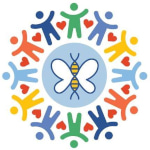World MCT8-AHDS Day Date in the current year: October 8, 2026
 World MCT8-AHDS Day is an annual awareness day observed on October 8. It was created to educate the public about MCT8 deficiency, also known as Allan-Herndon-Dudley syndrome (AHDS), an ultra-rare genetic disorder that affects cognition, mobility, and general health.
World MCT8-AHDS Day is an annual awareness day observed on October 8. It was created to educate the public about MCT8 deficiency, also known as Allan-Herndon-Dudley syndrome (AHDS), an ultra-rare genetic disorder that affects cognition, mobility, and general health.The MCT8 (SLC16A2) gene encodes monocarboxylate transporter 8 (MCT8), a protein that transports thyroid hormones into the brain. These hormones are crucial for brain development in utero and during early childhood. A lack of thyroid hormones has been linked to intellectual disability, speech difficulties, and motor impairments.
In patients with mutations in the MCT8 gene, the blood-brain barrier does not recognize the defective protein. Consequently, the T3 thyroid hormone cannot cross the barrier and accumulates in the blood. This means the brain does not receive enough thyroid hormones for development. High levels of T3 in the blood can also cause life-threatening complications.
A genetic disorder caused by MCT8 gene mutations is known as MCT8 deficiency or Allan-Herndon-Dudley syndrome (AHDS). The syndrome was named after William Allan, Nash Herndon, and Florence Dudley, who discovered it in 1944. However, it took another sixty years to connect the symptoms to mutations in the MCT8 gene.
AHDS is inherited in an X-linked recessive pattern, meaning males are affected much more frequently than females since they have only one X chromosome. Females with one affected chromosome have the other to compensate for it. The prevalence of AHDS is unknown because it is extremely rare and difficult to diagnose. In 2016, an estimated 320 cases were reported worldwide.
The main symptoms of AHDS include severe developmental delay, little to no speech development, intellectual disability, and progressive muscle problems. Infants with AHDS typically have low muscle tone (hypotonia), which progresses to spasticity (increased muscle tone and stiffness) and involuntary movements. Many patients have an impaired ability to walk independently and become reliant on wheelchairs by adulthood.
Other symptoms include poor head control, feeding difficulties and poor weight gain in infancy, an increased heart rate and low bone density due to high T3 levels, seizures, and sleep problems. Some patients with the syndrome have distinctive facial features, such as an elongated face. Thyroid function tests typically reveal high levels of T3 and normal to low levels of T4.
Like most genetic diseases, AHDS has no cure. Treatment focuses on alleviating symptoms and may include medication to reduce T3 levels and increase T4 levels, as well as physiotherapy, occupational therapy, speech therapy, massage, and animal-assisted therapy.
World MCT8-AHDS Day, launched in 2018 by the MCT8-AHDS Foundation, is a global event that raises awareness of the disease and supports affected families. The day is celebrated in October in honor of Professor Theo J. Visser, a Dutch researcher who, in October 2004, published a paper connecting AHDS to mutations of the SLC16A2 gene. The 8th day of the month is a reference to MCT8.
- Category
- International Observances
- Tags
- World MCT8-AHDS Day, Allan-Herndon-Dudley syndrome, MCT8 deficiency, international observances, awareness days